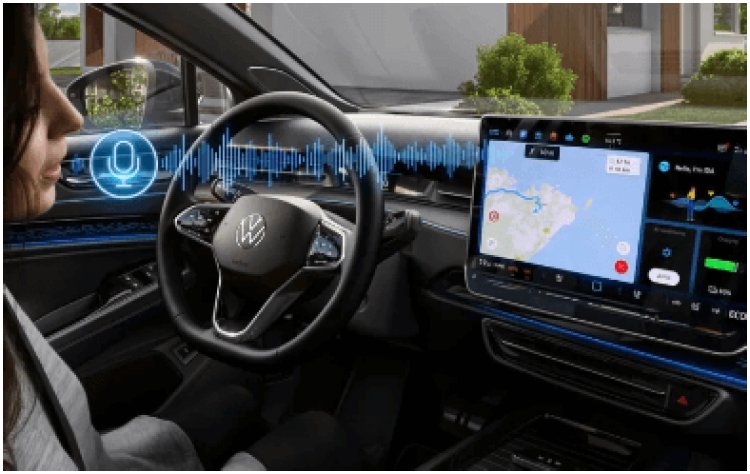Volkswagen is taking a significant step forward in the realm of automotive technology by integrating ChatGPT into its vehicles.
This innovative move aims to enhance the existing voice assistant functionality, creating a more intuitive and intelligent in-car interaction experience for drivers and passengers alike. With advancements in artificial intelligence rapidly transforming various industries, the automotive sector is no exception. Volkswagen’s decision to leverage AI-driven capabilities reflects a broader trend within the automotive market toward smarter, more connected vehicles that prioritize user experience and convenience.
The integration of ChatGPT into Volkswagen’s voice assistant marks a notable evolution in how drivers can interact with their vehicles. Traditional voice assistants often rely on simple command-response mechanics, which can limit their usefulness. In contrast, ChatGPT's natural language processing abilities allow for more fluid, conversational exchanges, enabling users to ask questions, make requests, or engage in discussions in a way that feels more organic. This development aligns with consumers' increasing expectations for technology to be user-friendly and contextually aware, creating a more seamless interaction between humans and machines.
By utilizing ChatGPT, Volkswagen is not just enhancing voice commands but also expanding the assistant's capabilities. For instance, drivers can engage in multi-turn dialogues, allowing them to ask follow-up questions or clarify their requests without needing to repeat themselves. This capability is particularly useful in various driving scenarios, whether seeking navigation assistance, adjusting settings, or accessing infotainment features. The ability to have more dynamic and responsive conversations significantly improves the overall user experience, making in-car technology feel less like a tool and more like an integral part of the journey.
Moreover, the integration of AI technology into vehicles holds the potential to personalize the driving experience. ChatGPT can learn from user interactions, adapting to individual preferences and habits over time. For example, it could remember frequently used routes, preferred music playlists, or even the driver's favorite temperature settings. This personalization fosters a deeper connection between the driver and the vehicle, as the system becomes more attuned to their unique needs and preferences. As a result, drivers can spend less time adjusting settings and more time enjoying the ride.
Incorporating ChatGPT also aligns with Volkswagen's broader strategic vision of advancing mobility through innovation. The automotive industry is undergoing a significant transformation, with manufacturers increasingly focusing on integrating digital technologies into their vehicles. By adopting AI capabilities, Volkswagen is positioning itself at the forefront of this evolution, demonstrating its commitment to providing cutting-edge solutions that enhance the driving experience. The integration of AI is not just about improving voice interactions; it's also about paving the way for future advancements in automotive technology, including enhanced connectivity and autonomous driving capabilities.
Safety is another critical aspect that Volkswagen aims to address through this integration. As vehicles become more technologically advanced, the need for drivers to stay focused on the road while accessing information becomes paramount. ChatGPT's ability to understand context and provide relevant responses without requiring extensive input from the driver can help reduce distractions. For instance, drivers can simply ask for directions or traffic updates without needing to take their eyes off the road or their hands off the wheel. This focus on safety aligns with the automotive industry's ongoing efforts to reduce accidents and improve overall road safety.
As with any technological advancement, there are challenges and considerations to keep in mind. Privacy and data security are paramount concerns when integrating AI into vehicles.
Volkswagen must ensure that user data is protected and that interactions with the voice assistant are secure. Transparency in how data is collected, used, and stored will be crucial in building consumer trust. Furthermore, the success of the integration will depend on continuous refinement and updates to the AI model, ensuring that it remains accurate and relevant to users’ needs.
Volkswagen's initiative is indicative of a larger trend within the automotive industry, where manufacturers are increasingly recognizing the importance of in-car technology. As consumer expectations evolve, automakers must find innovative ways to enhance the driving experience and differentiate themselves in a competitive market. By integrating advanced AI capabilities, Volkswagen is not only enhancing its vehicles but also setting a standard for what consumers can expect from future automotive technologies.
In conclusion, Volkswagen's integration of ChatGPT into its vehicles represents a significant advancement in automotive technology, enhancing voice assistant capabilities to create smarter in-car interactions. This move not only improves user experience through more natural and personalized interactions but also aligns with broader industry trends toward connectivity and safety. As Volkswagen continues to innovate, it will likely serve as a model for other automakers looking to embrace the power of AI in transforming the driving experience. The integration of such advanced technologies promises to reshape the future of mobility, making it more intuitive, engaging, and safe for everyone on the road.

